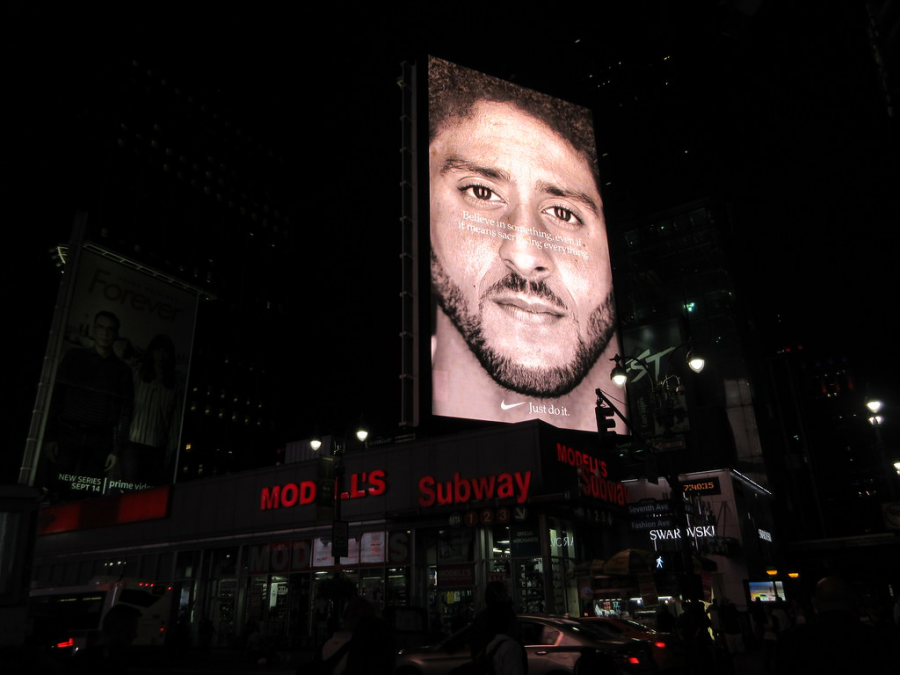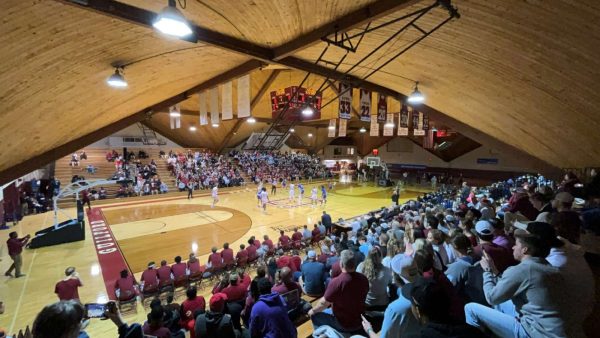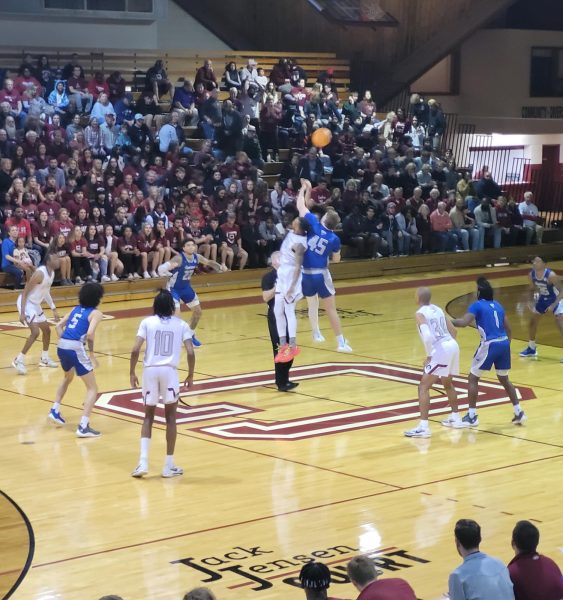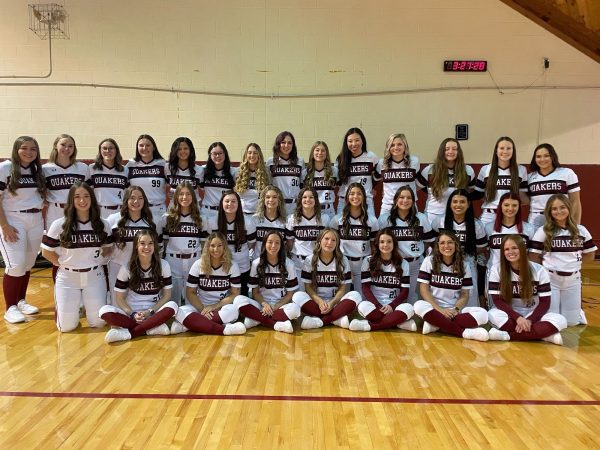BHM in sports: “Professional sport is posed to put Black History Month directly in the public eye’’
“Colin Kaepernick – Just Do It Nike Billboard 0239”
Take one look at Serena Williams, Muhammad Ali, Jackie Robinson—even leagues as a whole, such as the NBA and NFL, which had early bans on letting Black athletes compete, but now are around 70% Black—and it’s impossible to say that the popularity of sports is separable from the successes of Black athletes. February is dedicated to remembering the triumphs and nuances of Black history, and sports have proved to be a facet of American society enormously advanced by Black achievement.
“Sport acts as a way for us to examine where we stand as a society because it does reflect who we are,” said Michael White, a sport management professor at Guilford College, referring to this unique platform in the U.S.
This distinctive sort of bully pulpit of sports in U.S society, combined with the obvious depth of Black history, creates a unique crossroads where historical figureheads can be commemorated and celebrated for their contributions to athletics and their deep impact on the fans who watch them.
“At a personal level, I see these players as examples of how to ignore the naysayers and stay steadfast on your goals,” said Guilford quarterback Derrien Phillips, when discussing some of his early role models in football. “They all have faced scrutiny in different ways but continue to persevere in their careers.”
Phillips’s testimony to the inspirational role that these professionals frequently play exposes the complex adversity that many Black athletes face in their journey, and the caliber of strength necessary to endure and overcome this. Not only do Black professionals have to work to become elite in their fields, but they do so as targets of animosity and discrimination.
“During my career, I’d say the stereotype of Black quarterbacks have sometimes overshadowed my complete ability to play the game and learn the game,” Phillips said, “but I’d compare that to being a Black person in school; we are ‘not smart enough, don’t give effort, class clowns,’ the list goes on.”
Phillips draws this connection between stereotypes faced in sports and academic settings to highlight a similarity between environments where he had to overlook discrimination, choosing to, in his words, “let the race stereotypes fuel me even more and push me to prevail.”
Racial stereotypes, however, also frequently shape the circumstances that Black athletes face in a number of ways. Junior volleyball player Makayla Felton reflected on her experiences throughout her career playing in high school and club leagues, often as the only African-American on otherwise white teams.
“I’m sure you are familiar with that stereotype of African-American people being great at sports because we can jump high, run fast and we are ‘naturally athletic,’” said Felton. “My teammates really looked up to me to help win games by scoring the majority of the points and being the best on defense.”
Felton recalled her decision to stay silent about the pressure she faced, simply due her acceptance of the circumstances.
“I did not feel upset about my situation,” she stated. “I just noticed (that it was) my situation.”
This sort of apathy in response to isolation that Black athletes face may indicate some potential for change to start in the sport industry. However, this change must be adopted elsewhere.
As icons such as Serena Williams become further recognized, young athletes are given role models in the prevalence of celebrated Black athletes. The encouragement and normalization of Black participation in sports, particularly in women’s athletics, can help to create a more accepting and inviting environment for new generations.
Felton emphasized that the presence of even four Black players on her team, rather than zero, created a novel sense of belonging throughout her professional experience.
“I feel blessed everyday to be at Guilford on a team where there have been more than three other black girls on the team with me,” remarked Felton. “(I felt more) at home on the Guilford volleyball team because of this.”
White shared similar observations about the atmosphere at Guilford.
“(I have) seen it in our own classes here at Guilford College—the ability to have open debate, open conversation about what is happening in our world,” he commented.
He emphasized the necessity of teaching students to have honest conversations about race, and spoke about the crucial role that sports plays in such conversations.
“(Race is) safe to talk about, (and) it’s something that needs to be talked about,” he said. “One of the things I’ve always appreciated about sport is that it’s a place where people from disparate backgrounds, people from different experiences, come together to be part of something.”
White, as well as many others, recognizes the potential for sports to become a tool for social progress. Whether it comes through examples set by athletic icons or education that people gain by watching sports, the viewership and societal care for sports creates a path for Black history to be conveyed and celebrated directly in the public eye.












Frank Sterle Jr. • Feb 20, 2021 at 7:09 pm
At a very young and therefore impressionable age, I was emphatically told by my mother (who’s of Eastern European heritage) about the exceptionally kind and caring nature of our Black family doctor. She never had anything disdainful to say about people of color; in fact she loves to watch/listen to the Middle Eastern and Indian subcontinental dancers and musicians on the multicultural channels.
This undoubtedly had a notable positive effect on me.
Had she (for whatever reason) told me the opposite about the doctor, however, I could have aged while blindly linking his color with an unjustly cynical view of him and, eventually, all Black people.
When angry, my (late) father occasionally expressed displeasure with Anglo immigrants, largely due to his own experiences with bigotry as a new Canadian citizen in the 1950s and ’60s.
He, who also emigrated from Eastern Europe, didn’t resent non-white immigrants, for he realized they had things at least as bad. Plus he noticed—as I also now do—in them an admirable absence of a sense of entitlement.
Therefore, essentially by chance, I reached adulthood unstricken by uncontrolled feelings of racial contempt seeking expression.
Not as lucky, some people—who may now be in an armed authority capacity—were raised with a distrust or blind dislike of other racial groups.
Regardless, the first step towards changing our irrationally biased thinking is our awareness of it and its origin.
But until then, ugly sentiments need to be either suppressed or professionally dealt with, especially when considering the mentality is easily inflamed by anger.